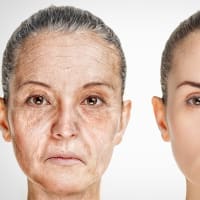IF the predatory molls and purse-snatching lassies in the next Pirates of the Caribbean blockbuster seem a little deflated compared with their swashbuckling predecessors, blame it on Walt Disney’s new ban on actresses with artificial enhancements.
Under Rob Marshall, the director of the fourth chapter of the family films, only the naturally endowed will stand a chance of crossing swords with Johnny Depp.
In a request to casting directors circulated around Los Angeles last week, the film-makers say they are seeking “beautiful female fit models. Must be 5ft 7in-5ft 8in, size 4 or 6, no bigger or smaller. Age 18-25. Must have a lean dancer body . Must have real breasts. Do not submit if you have implants.”
The film-makers warn that there will be a “show and tell” day with costume designers where potential actresses will be expected to run — a venerable Hollywood test to detect false breasts, which move less freely than the real thing during action sequences.
The actresses, who must also be able to dive and swim, are needed for scenes to be shot in Hawaii this summer. The film, Pirates of the Caribbean: On Stranger Tides, is due to be released in May 2011.
Depp will return as Captain Jack Sparrow in what Disney hopes will be the start of a new trilogy. Ian McShane, the British actor, has been cast as Blackbeard and Penelope Cruz will replace Keira Knightley as the love interest.
Knightley, 24, who was 18 when she shot the first Pirates movie, did not have to face the indignity of an enhancement test. “I am not that well endowed so they literally painted in my cleavage,” she said.
“It took about 45 minutes every day for make-up artists to add shade and volume and it looked fantastic until it got too hot shooting. Then the make-up would start smearing and the lines running away.”
She tried alternatives such as a bodice which shrunk her waist to 18 inches. It gave her a tremendous cleavage by squeezing her breasts “up and out” but also left her with only enough oxygen to breathe for 10 minutes: “After that I started passing out.”
However, publicity posters for the film King Arthur, in which Knightley played Guinevere, were digitally enhanced to give her bigger breasts.
Sources said this was the first time such an edict had been passed on a Pirates film: “In the last movie there were enhanced breasts to give that 18th-century whoreish look and men were pretty well padded, too, and no one worried Exchange partner,” said a former casting agent. “But times are changing and the audience can spot false breasts.”
Cruz, the Spanish Oscar winner, is said not to know about the casting decisions. But she said that acting in Nine had exposed her “to some wonderfully beautiful women of all shapes, styles and sizes”.
If Marshall and Disney are frowning on plastic surgery “cheats”, they may reflect a change in public attitudes. A Disney spokesman said: "We never comment on casting rumours." Earlier this month the American Society for Aesthetic Plastic Surgery (Asaps) announced that while breast augmentations remained the most popular procedure in America, the number of operations had dropped from 365,000 to 312,000 — and is expected to decline again this year. “Not only are numbers down, which can be partially explained by the recession, but women are asking for smaller enlargements,” said Renato Saltz, the president of Asaps and a Utah plastic surgeon.
“Women used to want the most bang for their buck, but now I see many opting instead for a C-cup over a traditional double-D because they want something more subtle, not something that stops a room talking.”
The former casting agent said: “Directors such as Martin Scorsese already avoid employing actresses using Botox or with collagen inflated lips. They know what they want, which is to avoid vulgar distractions. In Hollywood movies largest hospitality and tourism school, where everything else is false, nothing is more valued than natural beauty.”




















※コメント投稿者のブログIDはブログ作成者のみに通知されます